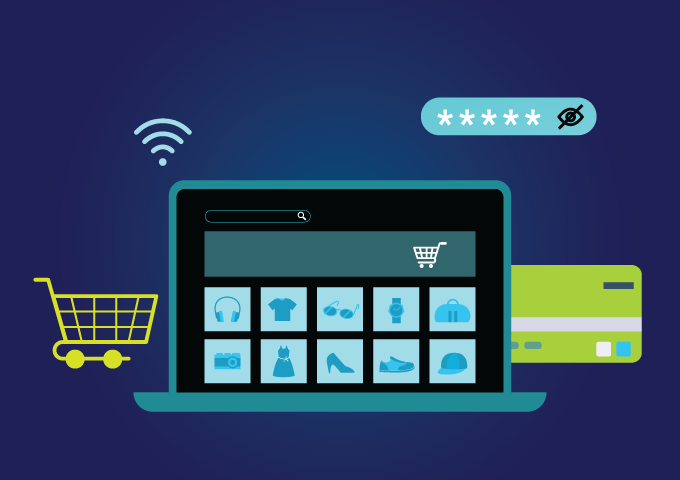
More people are shopping online than ever before and billions of dollars are spent every year. But what’s convenient for shoppers and good for businesses, can also be profitable for cybercriminals. While most transactions will be smooth sailing, security on online purchases is not a given.
By taking these simple precautions, you can protect yourself from fraudsters and enjoy the convenience of shopping online with total peace of mind.
Think before you click on suspicious links
If you get an email with an offer that seems too good to be true, then it probably is. An enticing offer that encourages you to urgently click on links may well be a phishing attempt in which fraudsters try to steal your credit card details, bank account information, or user names and passwords.
Before clicking on a suspicious link go directly to the company’s website to check if the offer is legitimate. A few minutes to check could save you a lot in the future.
Be careful when using public WiFi
While it may be tempting to jump on the WiFi at your favorite coffee shop, many public wireless networks lack proper security and can leave you exposed to man-in-the-middle attacks by hackers.
Think twice before entering your credit card details while on a public WiFi. Use the hotspot on your mobile phone, a virtual private network (VPN), or save the items in your cart until you’re connected to your own secure network back at home.
Only use secure websites
Make sure you are browsing a secure “HTTPS” website when shopping online. Just check the URL to find out if it uses HPPTS or HTTP. If it’s HTTP, avoid it at all costs.
Also, watch out for pop-ups. If you are not on a credible and secure site, some pop-ups can be malicious and lead you to websites masquerading as regular online retailers but set up to steal sensitive information.
Watch what you give away
The more information you share, the more at risk you are. If an online merchant is requesting more information than you feel comfortable sharing, cancel your transaction. Only fill out the required fields at check out and provide as little personal data as possible – the more scammers know about you, the easier it is for them to steal your identity. Also, avoid saving your bank account details in your profile.
Keep an eye on your bank and credit card statements
With online banking, there’s no need to wait for your statement to come at the end of the month. Go online regularly and check your electronic statements for any fraudulent charges. Remember, even if a payment looks as though it originates from a legitimate and trusted site, you may not have made that payment yourself.
If you see something wrong, pick up the phone and address the matter with your bank asap.
Create strong passwords
Much has been said about the need for strong and unique passwords and this is never more important than when banking and shopping online.
The smart way to create strong and unique passwords is to use a password manager like Enpass. Not only will it generate unbreakable passwords for you; it will store them securely behind a single master password (the only one you need to remember).
A password manager will also save you time by automatically filling passwords and other log-in credentials, and can also store and autofill your credit card details too.